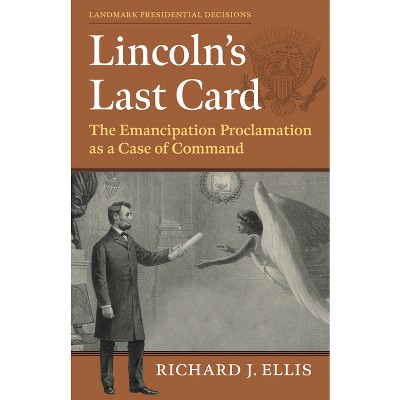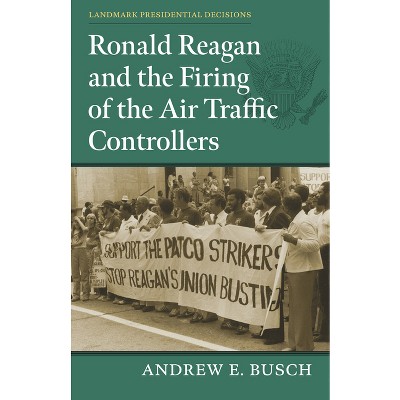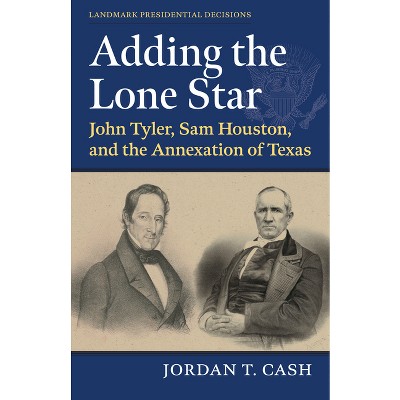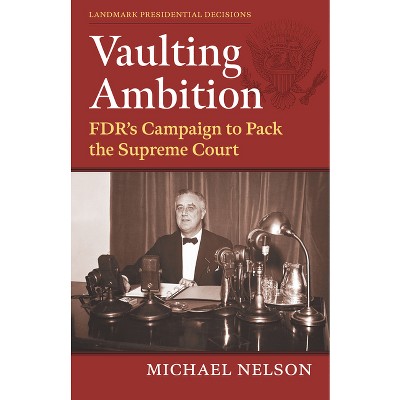Sponsored

Dwight D. Eisenhower and the Federal Highway Act - (Landmark Presidential Decisions) by Charles U Zug
In Stock
Sponsored
About this item
Highlights
- President Dwight D. Eisenhower is remembered by many as the originator of the American Interstate Highway System.
- Author(s): Charles U Zug
- 168 Pages
- Freedom + Security / Law Enforcement, Administrative Law & Regulatory Practice
- Series Name: Landmark Presidential Decisions
Description
About the Book
"On June 29, 1956, President Eisenhower signed into law the Federal Highway Aid Act, the largest public works project in American history. Given the hurdles Eisenhower faced at every stage of the project's development, his decision to support it is quite surprising. Among numerous other challenges, Eisenhower's decision to support this unprecedented expansion of federal power had required him to break from the tradition of his own Republican Party, which had consistently opposed similar public works programs when New Dealers had pursued them in the 1930s and 40s. Years later, Eisenhower's support for highway expansion and other big-government programs served as a rallying cry for conservatives like Barry Goldwater, who saw the Republican Party as having failed to offer a clear small-government alternative to the New Deal. Why did Eisenhower decide to advocate for such a controversial measure, and why did he persist in defending it in the face of so many setbacks and such forceful opposition from his own party? More broadly, what considerations went into his decision to pursue the largest expansion of federal infrastructure in American history, a decision that contradicted his own party's political philosophy and helped redefine the national government's role in the American constitutional order? Charles Zug pursue these questions through a sensitive historical analysis of the dynamics underlying Eisenhower's decision to campaign for the 1956 Federal Highway Act"--Book Synopsis
President Dwight D. Eisenhower is remembered by many as the originator of the American Interstate Highway System. He is also praised for restraining executive overreach, restoring the separation of powers, and presiding over an era of governmental equanimity and goodwill.
In Dwight D. Eisenhower and the Federal Highway Act, Charles Zug contests all these assumptions. Through archival research, Zug shows that Eisenhower's attempt to lead highway expansion during 1952-1955 ended in dismal failure. Far from championing the separation of powers, Eisenhower sought to marginalize Congress from the legislative process by secretly writing a transformative highway bill within the confines of his White House. And once it was announced, Eisenhower's highway plan was almost universally panned: Ike's own comptroller general deemed the plan's funding mechanism "illegal" before a bipartisan majority laughed it out of the Senate in the spring of 1955. The highway bill that did eventually pass Congress in 1956, and that went on to launch the modern interstate system, was written by congressional Democrats and emphatically rejected Eisenhower's basic approach to highway reform.
Drawing on executive politics, American political development, and leadership studies, Zug uses the Federal Highway Act to argue for a foundational reassessment of Eisenhower's legacy as highway founder, president, and political leader.
Review Quotes
"This nuanced, highly readable, and deeply informative book unpacks when and why presidential leadership matters by focusing on a single case (Highway Act) and a single president (Eisenhower) to help us see when the president was important in pushing the act through, and when other actors provided the hidden-hand leadership that led to success."--Michael A. Genovese, professor of political science and international relations at Loyola Marymount University, and author of The Modern Presidency: Six Questions That Define the Institution
"This is an impressive study. Melding the best of biography, history, and political science, Charles Zug captures Dwight D. Eisenhower's political philosophy and applies it to the formulation of one of postwar era's most important legislative achievements. This richly detailed book takes readers inside the workings of the Eisenhower administration and the law-making warrens of Capitol Hill. With incisive analysis backed by meticulous research, Zug has produced a thought-provoking work on the president, Congress, and the genesis of the Federal Highway Act."--Yanek Mieczkowski, author of Eisenhower's Sputnik Moment: The Race for Space and World Prestige
"Although Eisenhower's name is forever etched upon our interstate highway system, Charles Zug's meticulous and myth-busting account of the making of the Federal Highway Act chronicles a far more complicated and captivating story, one that restores Congress to the center of the policymaking process and forces us to fundamentally rethink the presidential leadership of Dwight Eisenhower, who emerges from this richly rendered narrative as neither a Whiggish champion of congressional primacy nor a political maestro of 'hidden-hand' leadership. Deeply researched as well as engagingly written, this book is a must-read not only for those interested in the Eisenhower presidency or fascinated by transportation policy but for all Americans who care about the role of the presidency and Congress in our constitutional system of separation of powers."--Richard J. Ellis, author Old Tip vs. the Sly Fox: The 1840 Election and the Making of a Partisan Nation
Shipping details
Return details
Frequently bought together


Trending Non-Fiction















